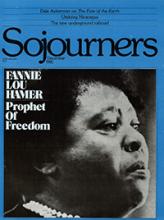I have a habit of turning on the radio for the news first thing in the morning. On November 11, the first words I heard were that Leonid I. Brezhnev, President of the Soviet Union, had died of a heart attack. I was sobered by that news.
Certainly this man will not be remembered as an advocate of justice and peace; for 17 years he ruled one of the most repressive societies in the world. But to his credit, he did show us that he did not want a nuclear war with the United States.
The Russian people have suffered the invasions and the bitter losses of war to an extent far greater than have most Americans: every Russian family was touched by World War II, in which 20 million of their people were killed. Perhaps Brezhnev's actions toward the United States came out of fear as much as anything else.
He was the Russian leader with whom our country secured the policy of detente. And even as detente seemed to be crumbling in the Reagan era, Brezhnev continued to offer steps toward reducing the nuclear arsenals of the United States and the Soviet Union and the tensions between the two countries. He agreed to SALT II, a treaty the U.S. Senate never ratified, and made specific initiatives in other areas as well.
If we could not call Brezhnev a peacemaker, we could at least recognize him as a moderate, a man open to reason. Most American presidents who dealt with him had assessed him as such, and in fact affirmed him as a man who genuinely desired peace.
With the advent of Ronald Reagan, the Cold War has been reborn. Our government is again claiming that every problem we face is traceable to the Soviet Union, from which all evil in the world originates.
Read the Full Article

